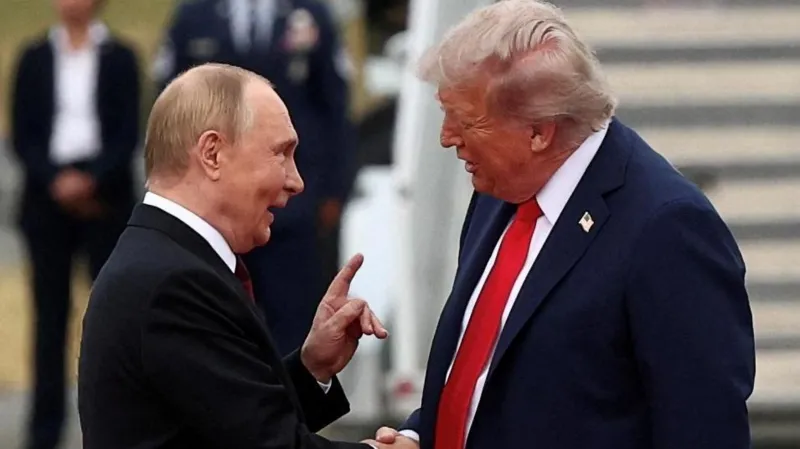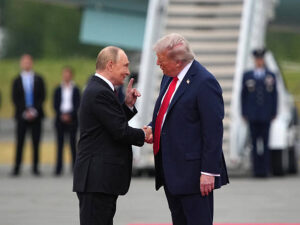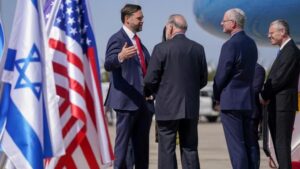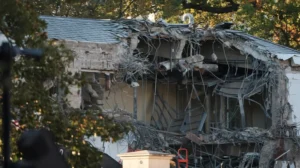
Plans for Trump-Putin meeting shelved days after Budapest talks proposed”
There are “no plans” for Donald Trump to meet Vladimir Putin “in the immediate future”, a White House official has stated.
The US president said last Thursday that he and his Russian counterpart would hold talks in Budapest within two weeks to discuss the war in Ukraine.
A preparatory meeting between US Secretary of State Marco Rubio and Russian Foreign Minister Sergei Lavrov was due to be held this week – but the White House said the two had had a “productive” call and that a meeting was no longer “necessary”.
The White House did not share any more details on why the talks had been put on hold.The “root causes of the conflict” needed to be addressed, Lavrov said, using Kremlin shorthand for a series of maximalist demands that include the recognition of full Russian sovereignty over the Donbas as well as the demilitarisation of Ukraine – a non-starter for Kyiv and its European partners.
Earlier on Tuesday, European leaders put out a statement with Zelensky saying that any talks on ending the war in Ukraine should start with freezing the current front line and accused Russia of not being “serious” about peace.
Trump and Putin last met in Alaska in August, during a hastily organised summit which yielded no concrete results.
The White House decision to shelve plans for a second Trump-Putin meeting may have been an attempt to avoid another similar scenario.
“I guess the Russians wanted too much and it became evident for the Americans that there will be no deal for Trump in Budapest,” a senior European diplomat told Reuters.
Zelensky said discussions about the front line were the “beginning of diplomacy”, which Russia was doing everything to avoid.
The only topic that could make Moscow “pay attention” was the supply of long-range weapons to Ukraine, he added.
Putin’s unscheduled call with Trump last Thursday came following speculation that the US was preparing to send long-range Tomahawk missiles to Kyiv that could potentially strike deep into Russia.
Zelensky said it was the Tomahawks issue that had forced Russia to engage in discussion.
Despite coming away from the White House empty-handed, he added that the talk about the missiles had turned out to be a “strong investment in diplomacy”.







